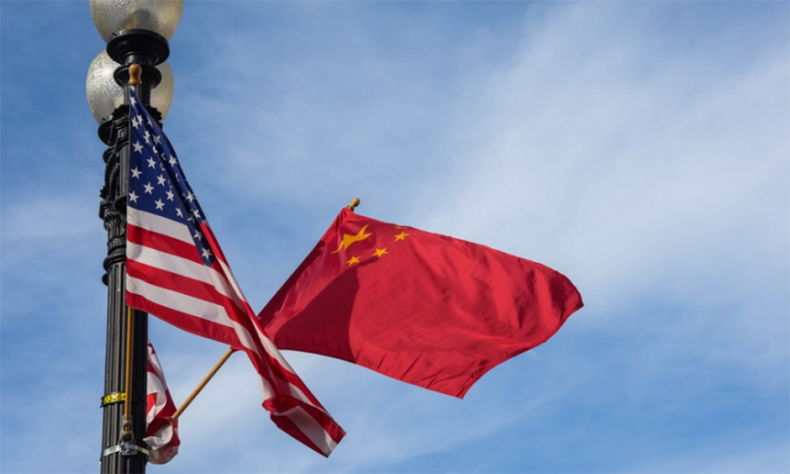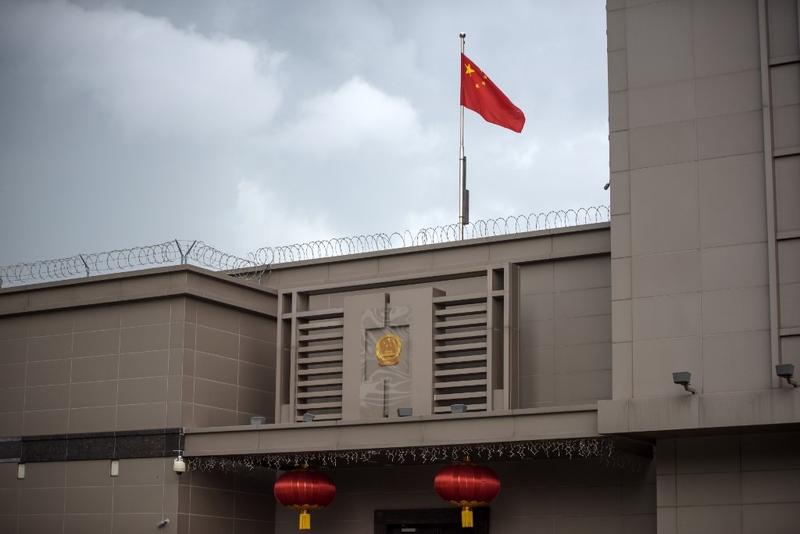The Shutdown of Chinese Consulate in Houston – An Order Against International Order

In a world fighting against a common enemy, the coronavirus, we do not need another distraction that will increase the pile of deaths.
The multifaceted dimensions of the relations between China and the United States have acquired a new layer with the State Secretary, Mike Pompeo´s decision to demand the shutdown of the Chinese Consulate in Houston. The international community watched in bewilderment the declaration issued on July 21, 2020, just after issuing another out-of-context and purposeless statement regarding the South China Sea territorial disputes in which Mike Pompeo compared China to a “land grabber.” Both cases show a profound disregard for international institutions (not to mention the US interference in internal affairs as in the Hong Kong case); however, the gravity of the shutdown of the Chinese Consulate General in Houston surpasses all the erratic behavior of the Trump´s administration towards China and to the international community at large.
The apparent reason for issuing such order is the allegation of espionage being conducted by consular personnel, which, according to the State Secretary, has been going on for quite a long time. However, the United States has not provided a shred of evidence to support the allegations and the shutdown order that is absolutely against international law and international relations principles long observed and regarded by states. As Mike Pompeo said laconically: “Just this week we closed down China’s consulate in Houston because it was a hub of spying and IP theft.” [1]

Let us see the provisions and principles that are affected by the order.
The Vienna Convention on Consular Relations (1963) states in its preamble the long-standing tradition of consular relations, connecting said relations to the UN Charter in these terms:
“Recalling that consular relations have been established between peoples since ancient times. Having in mind the Purposes and Principles of the Charter of the United Nations concerning the sovereign equality of States, the maintenance of international peace and security, and the promotion of friendly relations among nations,”
The nature of the establishment of diplomatic and consular relations among states is bilateral, which shows to the international community the mutual recognition of sovereignty euality. The structure of the international system is anarchical as all the states are equal on the legal stand, and there is no supra international institution to keep states in check; thus, international law is the peaceful way to keep the states within the legal boundaries that they created for themselves.
For that reason, the order to shut down the consulate is unlawful because it is unilateral and groundless in substantial evidence to justify the act. Besides, the unjustified order generates high instability in an interdependent world due to another important principle: reciprocity. In other words, the most probable course of action from China is to order the shutdown of a U.S. consulate in its territory. As observed, this generates a spiral of reciprocal acts that conduce to volatile relations and a less desired form of prevalent order in the system: the balance of power.
As posed by Axelrod and Keohane (1985)[2], conflict and cooperation are the two faces of the same coin; thus, it is expected to certain a degree that conflicts of understanding of the reality happen, but at the same time it is also expected, under international law, that states settle their disputes peacefully according to the UN Charter.
It is reasonable to say that this is a direct cause of the populist approach embedded in Trump´s foreign and domestic policies. According to Mohammadi and Javadi (2017, p.4), the language used during the presidential campaign prioritized the terms Americanism; immigration; terrorism; rigged system; and economy and trade.[3] The successful campaigning narratives based on an antagonistic anti-establishment attitude, an anti-pluralist stance and holistic exclusionary identity politics were transferred to the administration, providing the substantial change that we observe in the relations US-China, affecting the international institutions:
“While the specific role of the US in the global order brought the populist challenge for international law into the spotlight, comparable governmental practices and argumentative strategies can be found in numerous other countries, such as Bolivia, Ecuador, Hungary, the Philippines, Poland, Russia, Turkey or Venezuela.”[4]
The campaign against China is just one of the many facets of the populism mode that the White House advocates, which got worst with the pandemic´s exposure of the inability to deal with the adverse effects (as stated by Thomas Friedman: “The Trump administration clearly had no idea what was happening under its nose.”)[5], and the coming election in November that brings the need to stirrup the right-wing searching for support.
Pompeo´s remarks at the Nixon Library provides the priorities of Trump´s administration towards China: “… we need a strategy that protects the American economy and our way of life. The free world must triumph over this new tyranny.” It looks like he is going in the wrong direction!
In a recent study called Taking China´s Pulse, the Harvard Ash Center presented staggering empirical evidence that contradicts directly the rhetoric presented by Trump:
“The survey team found that compared to public opinion patterns in the U.S., in China there was very high satisfaction with the central government. In 2016, the last year the survey was conducted, 95.5 percent of respondents were either “relatively satisfied” or “highly satisfied” with Beijing. In contrast to these findings, Gallup reported in January of this year that their latest polling on U.S. citizen satisfaction with the American federal government revealed only 38 percent of respondents were satisfied with the federal government.”[6]
In conclusion, there is reason to argue that the US by their erratic actions is becoming a generator of instability to the world order, which is contradictory to its self-imaging as the champion of democratic values, and attempts against the post-war new world order that the country helped to forge in which multilateralism, security, and the search for peaceful relations are at the core.
In the event of maintaining the current course of action considering the China protest filed with the US government, China is authorized under the traditional principle of reciprocity to apply the same order to the US consulate in China. Although a shutdown order by China would be lawful, we expect that the internal and external pressures will make the US reconsider or at least sit down with Chinese diplomatic representation to find a bilateral and less stringent solution to the problem.
In a world fighting against a common enemy, the coronavirus, we do not need another distraction that will increase the pile of deaths.
[1] Remarks at the Nixon Library – Communist China and the Free World’s Future. In https://www.state.gov/secretary-travel/travel-to-california-july-23-24-2020/.
[2] Axelrod, R., & Keohane, R. O. (1985). Achieving Cooperation under Anarchy: Strategies and Institutions. World Politics, 38(1), 226–254. https://doi.org/10.2307/2010357.
[3] Mohammadi, M., & Javadi, J. (2017). A Critical Discourse Analysis of Donald Trump’s Language Use in US Presidential Campaign, 2016. International Journal of Applied Linguistics and English Literature, 6(5), 1–10. https://doi.org/10.7575/aiac.ijalel.v.6n.5p.1.
[4] Krieger, H. (2019). Populist Governments and International Law. European Journal of International Law, 30(3), 971–996. https://doi.org/10.1093/ejil/chz046.
[5] In https://www.nytimes.com/2020/05/26/opinion/mike-pompeo.html.
The author is Visiting Scholar for the Foundation for Law and International Affairs, and Academic Director for the Center of Economic Development Brazil-China.
 Facebook
Facebook
 Twitter
Twitter
 Linkedin
Linkedin
 Google +
Google +










